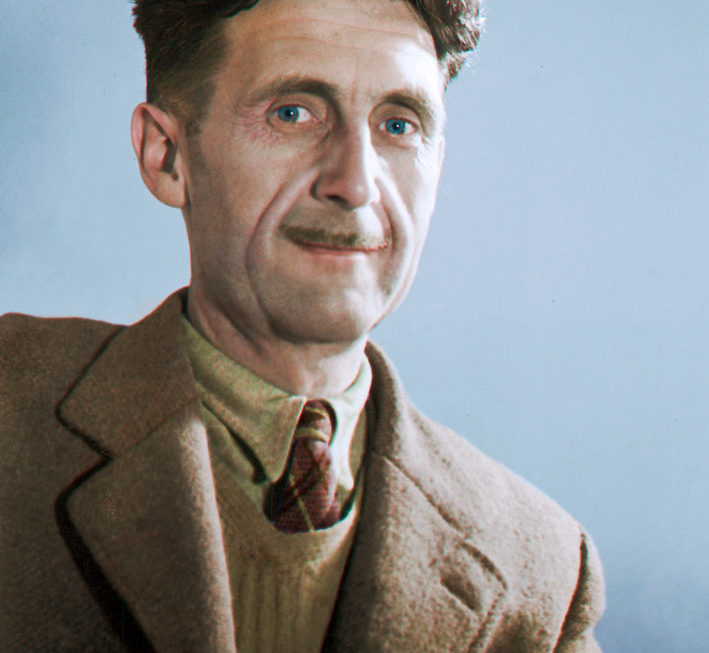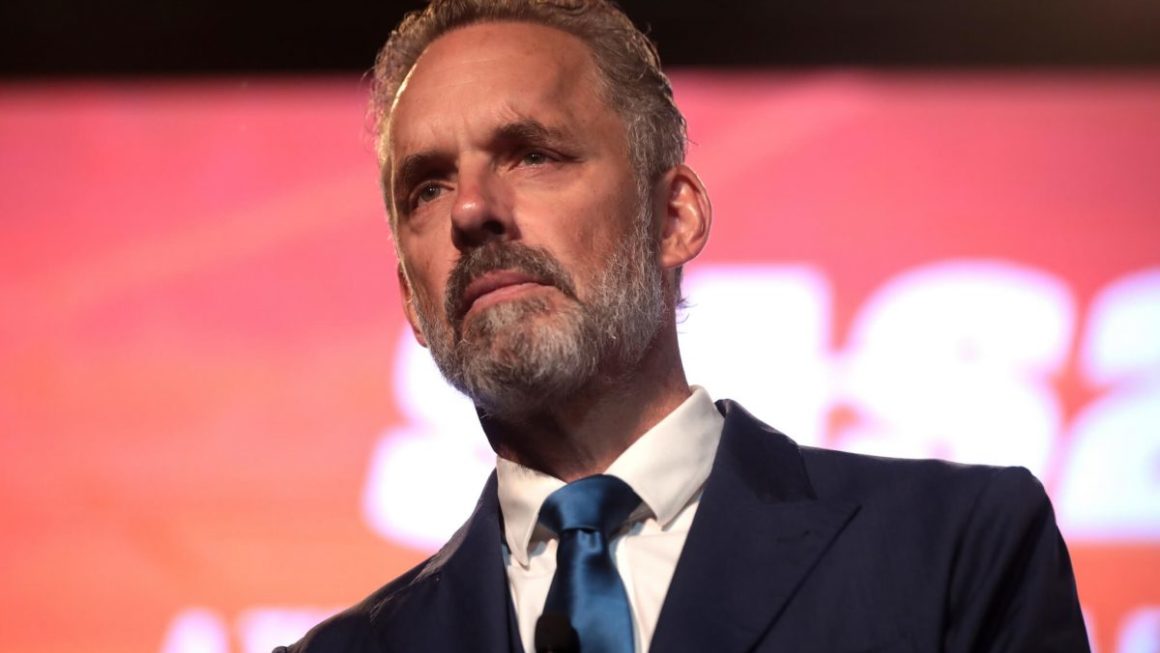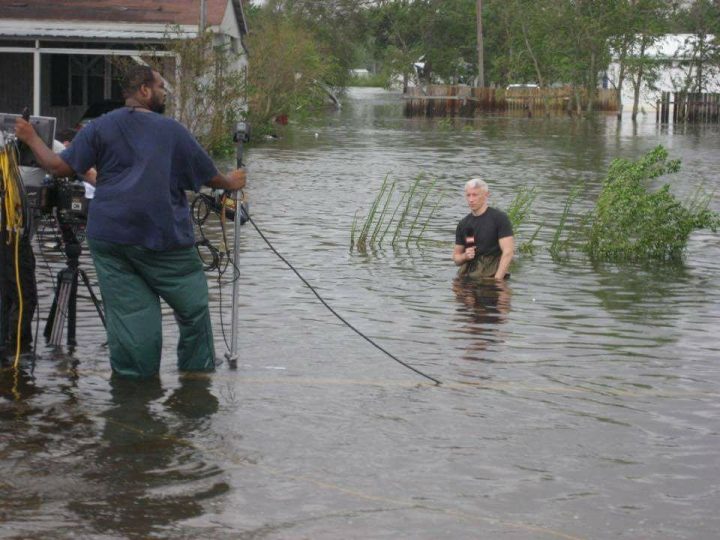13-minute read
70 years have passed since George Orwell published Nineteen Eighty-Four: the book that was to be his final work, his magnum opus, and perhaps the defining novel of the twentieth century. Orwell realised during the Second World War that the world was heading into “an age of totalitarian dictatorships – an age in which freedom of thought will be at first a deadly sin and later on a meaningless abstraction.”[1] In Nineteen Eighty-Four he painted a picture of the worst possible future that socialism (or an ideology purporting to be socialism) could create in the Western world: a warning for posterity. The Chinese and North Korean states went on to fulfil many of Orwell’s predictions over the subsequent decades, but Western countries seemed to have heeded the warning and avoided the horrors – until now. Today, as far from 1984 as that date was from the book’s publication, Orwell’s nightmare may finally be arriving at our doorstep.
Many observers made precisely this point after Donald Trump took office in 2017. Horrified by presidential adviser Kellyanne Conway and her use of the phrase ‘alternative facts’ when describing flagrant lies, they hurried out in droves to buy Orwell’s novel, and sales increased by 10,000% as a result. At the time it was widely agreed that the Trump administration was the closest thing the West had seen to a real Big Brother. I recall hysterical students at the University of Sheffield telling me in all seriousness that they feared Trump was going to start monitoring private sexual behaviour. More recently, the journalist Dorian Lynskey has been repeating the trope in articles and a book. “During Trump’s campaign against Hillary Clinton,” he writes, “it was hard to watch the candidate whipping supporters into a cry of ‘Lock her up!’ without being reminded of the Two Minutes’ Hate… It is truly Orwellian that the phrase ‘fake news’ has been turned on its head by Trump and his fellow authoritarians to describe real news that is not to their liking.” No doubt these comparisons have helped to sell many copies of Lynskey’s book, but the case is hardly a strong one. Ironically, however, the drama queens have identified the right problem while pointing to the wrong culprit.
In Nineteen Eighty-Four, a totalitarian party calling itself Ingsoc (English Socialism) inverts reality at every turn. The party’s buildings bear the legend War is peace. Freedom is slavery. Ignorance is strength.[2] The Ministry of Peace concerns itself with war, the Ministry of Truth with lies, the Ministry of Love with torture, and the Ministry of Plenty with starvation. As Orwell explained, “It is only by reconciling contradictions that power can be retained indefinitely.”[3] Sometimes two and two are four, but sometimes they are five, says O’Brien, one of the leaders of the Thought Police. All that matters is what the Party requires the individual to believe at that particular moment. Orwell described himself as a prophet,[4] and a prophet is exactly what he was. The inversion of reality is now happening as he predicted, but the real vehicle for this inversion is progressive or ‘social justice’ ideology.
Today we are told that a man is not always a man, but sometimes a woman, and a woman is sometimes a man – a remarkable idea on the face of it, and one that surely requires debate, at the very least. However no debate is permitted. If we dare to question the idea then we risk being fired from our jobs, investigated by the police, fined tens of thousands of pounds, and relentlessly harassed by rabid activists. We are also told that the niqāb and the burqa (the traditional coverings that conceal a woman’s face in some Muslim societies) should be seen as symbols of female empowerment. In a move that would have horrified the earliest champions of feminism, many Western feminists will now defend the kind of men who should be their worst enemies; the kind of men who really, genuinely, unashamedly hate women. To be clear, these are men who regard women as so tainted and stained with sin that their faces must be removed from public view – hidden away behind black cloth. But in the Orwellian twenty-first century, to hate women is to love women. Misogyny is feminism. Oppression is empowerment. To echo the Ingsoc slogan, slavery is freedom.[5]
Universities have begun deploying ‘diversity-and-inclusion’ officers whose job it is to enforce politically correct thought and action. These commissars are on the lookout for anyone who expresses the ‘wrong’ opinion. Offenders are enrolled on mandatory courses: sent for re-education, in other words. There have even been cases in which professors were convicted of “arguing for objective academic standards.” It would appear that objective academic standards are now classed as politically incorrect thought: something described in Orwell’s dystopian vision as wrongthink. Orwell’s totalitarian party actually aimed to render wrongthink impossible by systematically altering the English language, replacing it with Newspeak. Observe the new language peppering today’s university dissertations and even finding its way into news reports – ‘intersectionality’, ‘cisgender’, ‘heteronormative’. Remember the clutch of new gender pronouns – ‘ze’ and ‘zir’ and so on. The psychologist Jordan Peterson suggests that these pronouns have been created by “people whose essential desire is to gain linguistic control.”
Meanwhile old words have begun disappearing: the French parliament, for instance, has banned the words ‘mother’ and ‘father’ (les mères and les pères) from official paperwork within the education system. In their place we have ‘Parent 1’ and ‘Parent 2’ – much more clinical and efficient, much less messily human. This is exactly how Orwell’s Ingsoc began to “narrow the range of thought.” By destroying scores of old words and introducing a smaller number of cold, characterless new ones – zombie words like ‘plusgood’ and ‘unperson’ (or indeed ‘cisgender’) – the authorities gain some measure of control over the bandwidth of human thought. Language may not dictate all that it is possible to think (this is known as the Sapir-Whorf Hypothesis, or Sapir-Whorf Fallacy) but it does dictate which thoughts are able to receive expression. “Every year fewer and fewer words,” says Syme in Nineteen Eighty-Four, “and the range of consciousness always a little smaller.”[6]
Orwell also painted a terrifying picture of the breakdown of parent-child relationships. In his novel, children are brainwashed by the state and encouraged to report their parents to the authorities. As a result, “it was almost normal for people over thirty to be frightened of their own children… hardly a week passed in which the Times did not carry a paragraph describing how some eavesdropping little sneak – ‘child hero’ was the phrase generally used – had overheard some compromising remark and denounced his parents to the Thought Police.”[7] Back in the real world, the father of a 14-year-old Canadian girl was recently told that he must stop referring to her as a girl, both publicly and privately, and if he refuses to comply then he will be arrested and charged with “family violence.” His daughter has begun taking testosterone because she identifies as transgender. She criticised her father in a court document, saying “if he speaks in public ‘as my father’ about me in my case, I will be ‘outed’ and I can never go back in the closet.” And so the father has been shamed and denounced as a thought criminal, and now his daughter is being taken away from him in a manner more surreal than anything Orwell could have imagined. The state is erasing her in front of his eyes, day by day, as the testosterone treatment takes effect and she slowly becomes someone else.
The truth is that we do not understand the causes of gender dysphoria, whether in children or adults, and this means that the treatment of children with testosterone or puberty-suppressing hormones is essentially a big blind experiment. The medical community has very quickly accepted the use of potentially dangerous treatments, having apparently skipped the usual period of cautious scientific scrutiny. We should really ask ourselves how wise it is to be so cavalier, and how wise it is to experiment on children. Puberty blockers are particularly suspect: those who support the use of these hormones breezily declare that the treatments are ‘reversible’, but in reality we have no evidence for normal pubertal development after withdrawal from puberty-suppressing drugs.
Worse, we do have evidence that such treatments may have catastrophic side-effects, including damage to neurological development. An 11-year-old boy on puberty blockers experienced an 11% drop in his IQ (from 80 to 71), along with a fall in speed processing and operational memory. A longitudinal follow-up of girls who had been treated with gonadotropin-releasing hormone analogs found a global IQ decrease, and further studies have linked puberty suppression to verbal skill impairment among sufferers of gender dysphoria. Alarm bells should be ringing, but they are not. Instead we are pressing ahead with the new treatments. In schools throughout the United Kingdom, impressionable young children are being inculcated with the idea that they might be transgender, and the moment they show any signs of mild unorthodoxy they are pushed to transition. Parents can be reported for abuse if they fail to support the supposed wish of their child to change sex, despite the dangers involved. They also risk losing custody of their children.
The transgender issue ties in with the phenomenon of ‘hate crime’ – a phrase that could have been lifted straight from the pages of Nineteen Eighty-Four. In June 2019 the BBC reported that transgender hate crimes had risen by 81% over the previous year. The Stonewall charity claimed in response that “transphobia is everywhere” in British society today. Such reports inevitably prompt outrage, but the truth is that more than two thirds of ‘hate crimes’ turn out to be hoaxes. Some examples were listed in a recent article for the Wall Street Journal: “In 2012 a popular gay bar in suburban Chicago was destroyed by fire, and the owner cited homophobia as the reason. The same year, black students at the University of Wisconsin-Parkside reported death threats from hate groups and found a noose hanging from a dorm room door. Ultimately, the owner of the bar pleaded guilty to arson and insurance fraud. And a black student at the university fessed up to sending racist threats and planting a noose… A gay pastor in Texas accused a Whole Foods store of selling him a cake with a slur written in icing. The store produced video evidence that the pastor was lying. A white woman in Oregon disfigured her own face with acid and claimed that a black man had attacked her. Later, she admitted fabricating the entire story. After signs that read ‘blacks only’ and ‘whites only’ were found at bathroom entrances on the University at Buffalo campus in upstate New York, a black graduate student confessed to posting them.”
It’s not just the slew of fake hate crimes that should worry us. Even real hate crimes cannot be trusted. The BBC’s transphobia report helpfully defined the term ‘hate crime’ for the reader: it means “any criminal offence which is perceived, by the victim or any other person, to be motivated by a hostility or prejudice.” The key word here is perceived. The idea that a crime automatically becomes a ‘hate crime’ just because the accuser says so is catastrophically dangerous. We are relying on the flawless honesty and sanity of every single member of the public – “any other person,” according to the BBC. This is absurd, of course – there may be plenty of people who are both honest and sane, but society is also full of liars, fantasists, and sufferers of delusions both mild and severe. The hate crime legislators are pretending that this is not the case, and as a result they are creating the clammy atmosphere of fear that Orwell described so memorably. To be accused is to be guilty. No one is safe.
The biologist Bret Weinstein suggests that while “college campuses may be the first dramatic battle… this is going to find its way into the highest levels of governance.” In the end, says Weinstein (a man not given to hyperbole) “civilisation will come apart.” We can already see the first cracks appearing in the Western legal system: when a Canadian court ordered the conservative activist Bill Whatcott to pay $55,000 to a biological male for the crime of referring to him as a biological male, the judge presiding over the case refused to allow Whatcott’s lawyer to present testimony demonstrating that the man was indeed a biological male. “The ‘truth’ of (Whatcott’s) statements in the flyer is not a defence,” said the judge. “Evidence is simply not relevant to the legal issue.” This case gave us the most alarming indication of just how far the rot has spread. We actually heard – from the mouth of a judge, no less – that truth and evidence have no place in a court of law. We are inching closer and closer to O’Brien’s philosophy in Nineteen Eighty-Four: the belief that there is no such thing as external, objective truth. “Reality exists… only in the mind of the Party, which is collective and immortal.”[8]
It should come as no surprise, then, that some unfortunate lawyers have been persecuted because they provided legal representation to the ‘wrong’ person. The Harvard law professor Ronald Sullivan was fired from his position as faculty dean at Winthrop House because he had joined the team of lawyers representing Harvey Weinstein. Weinstein has not yet been found guilty of any of the charges brought against him, but Harvard University apparently believes that due process and equality before the law should be applied only to the ‘right’ people. Everyone is equal, but some people are more equal than others.[9] Bret Weinstein (no relation of course) may have sounded extreme with his warning that “civilisation will come apart,” but this is only if we limit progressive ideology to blue-haired students waving placards. The warning seems far more reasonable when we consider the splintering of the legal system that ultimately underpins our civilisation. Truth is no longer a defence; evidence is no longer relevant; the institution of due process is under suspicion… We should be terrified.
It would be easy to fall into the trap of conspiracy theorising, but there is no evidence that a shady cabal is deliberately driving society towards dystopia. Instead, it looks like we have accidentally created this mess. In 1849 the great American essayist Henry David Thoreau had an epiphany: “I saw that the State was half-witted… that it did not know its friends from its foes, and I lost all my remaining respect for it, and pitied it.”[10] When society is stumbling into such unknown territory as the world of gender dysphoria, then perhaps it should come as no surprise that the authorities are crashing around wildly and making huge mistakes.
No doubt these mistakes often begin with good intentions. Earlier this year an excellent report by the journalist Ian Cobain revealed how the UK government has been manufacturing ‘spontaneous’ public responses to terrorist attacks in a well-meaning but cynical attempt to manage the public mood. ‘I heart…’ posters were distributed around the scenes of the 2017 London Bridge attack and the Finsbury mosque attack, giving the impression that ordinary people had simply stuck them up of their own volition. The government employed people to hand out bunches of flowers in supposedly unprompted gestures of compassion and support for the Muslim community. Once again, we find that Orwell got there first. He had the Party’s newscasters reporting the most unlikely scenes: “All over Oceania this morning there were irrepressible spontaneous demonstrations when workers marched out of factories and offices and paraded through the streets with banners voicing their gratitude to Big Brother for the new, happy life which his wise leadership has bestowed upon us.”[11] Of course unity is always preferable to division, and we certainly don’t want people to react to terrorist incidents by violently targeting minority communities. But clumsy attempts at social engineering are unlikely to succeed in the long term.
The same hamfisted chaos is apparent in the UK government’s handling of online content. Companies like Facebook are being forced to remove ‘harmful’ content, with executives potentially facing jail time if they fail to comply. Unfortunately the government has provided no clear definition of ‘harmful’. The new legislation mentions “trolling,” “cyberbullying,” and “disinformation,” but as pointed out by Matthew Lesh, Head of Research at the Adam Smith Institute, these are “vague, subjective concepts that aren’t defined in English law and necessitate subjective boundary setting.” This brings us back to the same problem raised by the definition of ‘hate crime’ – law without objectivity is completely unworkable. “The overreach is breathtaking,” says Lesh. “The combination of an extremely broad and unclear definition of ‘harm’ alongside the threat of swingeing fines and criminal prosecutions will lead online companies to err on the side of extreme caution and remove reams of content.” We can look forward to a tsunami of court cases and a monumental mess before the government begins rolling it all back, red-faced. I don’t see malevolence here – I see incompetence.
We may be living in the age of the tech giant, but these new non-state powers are every bit as half-witted as the blundering governments they are superseding. Leaked internal emails have shown Google staff referring to conservative intellectuals like Jordan Peterson and Ben Shapiro (an Orthodox Jew) as “Nazis using dog whistles.” Such comparisons have frequently been made for the purposes of hyperbolic headlines, but it is a shock to see them appearing in private emails. This indicates that staff at one of the most powerful companies in the world actually believe the hyperbole – they are so obtuse that they think conservatives are Nazis. These emails showed us what we are really facing: catastrophic ignorance at the highest levels.
The unlikely relationship between Islamists and the Western radical left that I mentioned earlier begins to make sense when we understand that “the Islamists are the leading partner and the leftists are the useful idiots,” as the historian Niall Ferguson puts it. Fooled by the philosophy of cultural relativism, these useful idiots excoriate white Western misogynists while excusing Muslim misogynists. They enthusiastically promote LGBTQ values across the world, and yet they stop their ears to the cries of homosexuals tortured and killed by Muslim extremists. Their idiocy makes them useful to any number of tyrants: not only the Islamists, but also Vladimir Putin, who observes the chaos enveloping Western society and gloats that “the liberal idea has become obsolete.” They may yet become useful to Xi Jinping, who has only been prevented from using lethal force on the Hong Kong protesters by international attention. Xi will be delighted that some Western progressives have turned against the protesters in response to British colonial flags being raised in the territory. When enough useful idiots have stopped caring and moved their attention elsewhere, then he can send in the People’s Liberation Army, and the streets of Hong Kong will run with blood.
Back in the West there are no Thought Police hammering on our doors in the middle of the night, and there is no dreaded Ministry of Love waiting for us. But Orwell’s vision was prescient in many other ways. He was an astute reader of human psychology and of the directions that societies were likely to take. “Don’t let it happen,” he said of Nineteen Eighty-Four. The Western world now finds itself at a perilous juncture, having failed to treat Orwell’s warning with the seriousness it deserved. We didn’t read him carefully enough, and we invoked him at all the wrong moments.
Notes
[1] George Orwell – “Inside the whale,” New Directions in Prose and Poetry, 1940
[2] George Orwell – Nineteen Eighty-Four (Penguin, London, 1989 edition, orig. 1949), p6
[3] Ibid., p225
[4] George Orwell – Homage to Catalonia (Penguin, London, 1975 edition, orig. 1938), p174
[5] Orwell 1989, op. cit., p277
[6] Ibid., p55
[7] Ibid., pp. 26-7
[8] Ibid., p261
[9] George Orwell – Animal Farm (Penguin Classics, 2000 edition, orig. 1945), p97
[10] Henry David Thoreau – “Civil disobedience” (1849)
[11] Orwell 1989, op. cit., p61




In 1949 George Orwell published his classic book “1984.” I can’t believe that his predictions have come true after 70 years, especially since those technologies he predicted also came true. Maybe that’s the reason why we need to study dystopian literature.